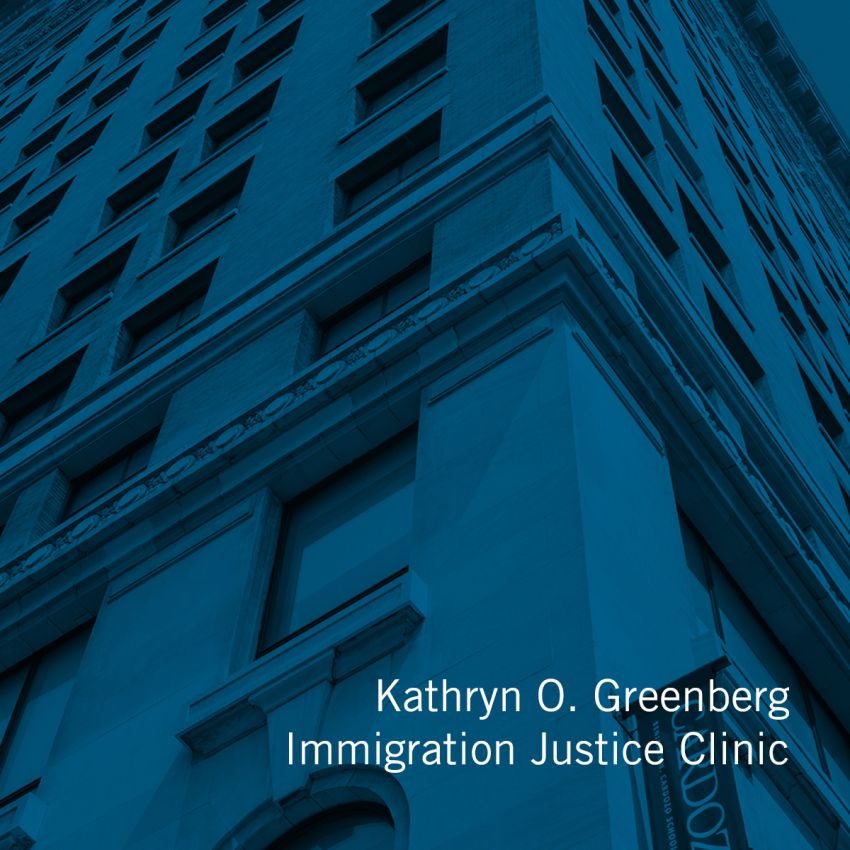
Cardozo’s Kathryn O. Greenberg Immigration Justice Clinic has protected a woman from deportation to Haiti, where she faced torture.
The woman came to the United States from Haiti in 1991 when she was 10. She’s a survivor of gender-based violence, and the instability in her life ultimately led to her conviction in 2012 of a felony that made her deportable. In prison, she got treatment for her past trauma, and she committed to rehabilitation, earning a bachelor’s degree.
But despite her achievements, she faced deportation to Haiti as soon as she was released. The Immigration Justice Clinic became involved in her case in 2021, and in June 2023, it got her case reopened so that she could apply for protection under the Convention Against Torture, a treaty that prevents the deportation of individuals who would more likely than not face torture.
This semester, students with the Immigration Justice Clinic submitted evidence and briefing to the Elizabeth Immigration Court in Elizabeth, New Jersey. They argued that if their client returned to Haiti, she would be singled out for torture as a female criminal deportee who does not speak Haitian Creole and does not have any remaining family in Haiti.
On Dec. 15, an immigration judge granted the client deferral of removal under the Convention Against Torture, and the government did not appeal the decision. The woman was released from immigration detention and reunited with her U.S.-citizen mother and sisters in New York.
She hopes to pursue a master’s degree in social work or human rights.
But her fight is not yet over.
Convention Against Torture protection is precarious and does not provide a path to lawful immigration status or citizenship.
The clinic and its partner organizations will continue to advocate for her to be pardoned by Gov. Kathy Hochul.
“The moment I read the client’s background, I knew I had to fight to give this person the second chance I truly believed she deserved,” said 2L clinic student Tanuja Gupta. “Haiti is in complete chaos right now, but our client would have been uniquely targeted for torture, and she deserved the best arguments we could make for her. It was a demanding semester, but I learned more about immigration law in the last three months than most get to learn in a lifetime about the topic. And the biggest lesson is that the will to keep fighting for others will always come from my clients’ own resilience.”
In addition to Gupta, the students who worked on the case this semester included 2L Emma Bratman. Last year, 3L students Noa Gutow-Ellis, Marc Cardona and Chris Chuang worked on the case. In 2021-2022, Paloma Bloch, Bill Seguin and Jack Andrews worked on the case; and in spring 2021 Jason Ducena, Melody Rahimi and Zachary Ross worked on it.
